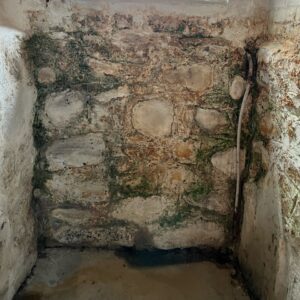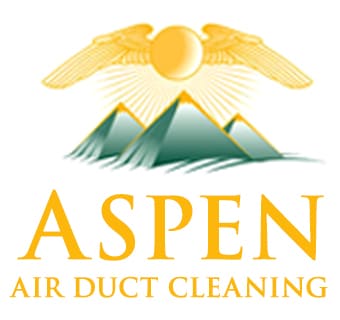The Hidden Dangers of Skipping Mold Testing After Water Damage
 Water damage is among the most overwhelming challenges homeowners in the Greater Boston area may encounter. Whether it’s from a burst pipe, basement flood, roof leak, or storm runoff, water intrusion can wreak havoc on your home. But here’s something many homeowners don’t realize: the visible water damage is just the beginning.
Water damage is among the most overwhelming challenges homeowners in the Greater Boston area may encounter. Whether it’s from a burst pipe, basement flood, roof leak, or storm runoff, water intrusion can wreak havoc on your home. But here’s something many homeowners don’t realize: the visible water damage is just the beginning.
What you can’t see—mold growth hiding behind walls, under flooring, or inside your HVAC system—can pose serious risks to your home, your health, and your wallet. That’s why mold testing after water damage isn’t optional—it’s essential.
At Aspen Air, we’ve seen firsthand how skipping this step can lead to long-term problems that are far more costly and dangerous than the initial water event. If your home in Boston or the surrounding areas has experienced water damage, here’s why professional mold testing should be your very next move.
Mold Moves Fast - Especially in Boston's Summer Climate
Here in the Greater Boston area, summer humidity is no joke. The combination of moisture and warm temperatures creates the perfect environment for mold to thrive. In fact, mold can begin growing in as little as 24–48 hours after a water intrusion.
Even if surfaces seem dry, moisture can remain trapped in insulation, drywall, wood framing, and other porous materials. Without professional drying and testing, you won’t know if your home is truly in the clear.
Health Risks You Shouldn’t Ignore
Mold isn’t just unsightly or musty-smelling—it can have serious health consequences. Some mold strains produce allergens and irritants that affect both healthy individuals and those with pre-existing conditions.
Common health issues linked to mold exposure include:
- Chronic coughing or sneezing
- Skin rashes and irritation
- Eye, nose, and throat discomfort
- Worsening asthma or allergy symptoms
- Fatigue or headaches
- In rare cases, mold toxicity
For vulnerable groups such as children, the elderly, and individuals with compromised immune systems, mold exposure can be even more dangerous.
Professional mold testing helps detect hidden growth early, before it impacts your family’s health.
Mold Doesn’t Just Stay Where It Starts
Because mold spores are invisible to the naked eye, they can travel through your home undetected. If left undetected, mold can spread through your home’s HVAC system, landing on furniture, clothing, and walls in completely different areas. What starts as a small issue in the basement can become a whole-house problem.
This is especially concerning in older Boston-area homes, where outdated ventilation systems and poorly sealed basements allow spores to circulate freely.
Don’t Trust the “Sight and Smell” Test
Many homeowners assume that if they don’t see mold or smell anything odd, they’re in the clear. The trouble with mold is that it often hides before showing any visible signs.
Hidden mold can lurk:
- Behind baseboards and drywall
- Under carpets and floorboards
- Inside HVAC ducts and vents
- In insulation or attic rafters
Without professional mold testing using air samples and moisture detection equipment, it’s nearly impossible to know if mold is present, or how extensive the damage really is.
The Financial Impact of Waiting Too Long
Think skipping mold testing saves money? Think again. Delaying or avoiding this step can lead to:
- More extensive structural repairs
- Increased remediation costs
- Lost personal property
- Home devaluation if mold becomes widespread
What could’ve been a quick and affordable fix becomes a months-long remediation process. In worst-case scenarios, mold infestations can even render parts of your home uninhabitable until cleaned up.
A mold test costs a fraction of what full remediation will cost down the road. It’s a smart way to protect your home’s structural integrity and resale value.
Insurance May Require Documentation
If you’re filing an insurance claim for water damage, proper mold testing and documentation can support your claim and prevent issues with future coverage.
Skipping the testing step could give insurers a reason to deny part of your claim, especially if mold spreads after initial cleanup.
Aspen Air provides thorough mold testing with written reports, moisture readings, and photos—perfect for insurance documentation and peace of mind.
Expert Mold Testing in Boston, MA
Boston homeowners turn to Aspen Air for proven solutions to indoor air quality problems. Whether you’re dealing with a recent flood or just want to be sure your home is safe, we offer prompt service, honest assessments, and expert guidance every step of the way. Call Aspen Air today at 978-681-5024 or contact us to schedule. Proudly serving homes and businesses across Greater Boston. Breathe easy. Protect your home. Trust Aspen Air.

